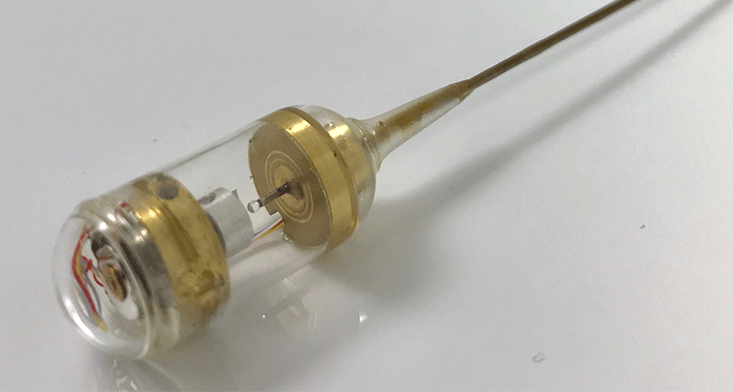Friday, 27 February 2026
Researchers in Karachi develop a device to study malnutrition
Shaped like a transparent pill, the ingestible device contains a high-resolution infrared system that captures microscopic images of unusual tissue patterns in the stomach and intestine. A group of researchers…

Shaped like a transparent pill, the ingestible device contains a high-resolution infrared system that captures microscopic images of unusual tissue patterns in the stomach and intestine.
A group of researchers at Aga Khan University in Karachi has partnered with faculty at the Massachusetts General Hospital, an affiliate of Harvard Medical School, to test a novel pill-shaped imaging device that can offer a low-cost and non-invasive method to understand the causes of malnutrition in children.
Shaped like a transparent pill, the ingestible device contains a high-resolution infrared system that captures microscopic images of unusual tissue patterns in the stomach and intestine.
AKU researchers under the SEEM grant, Study of Environmental Enteropathy and Malnutrition in Pakistan, funded by the Bill and Melinda Gates Foundation, are studying if malnourished children have a different set of bacteria in their intestines that limit their growth potential and reduce their immunity to disease.
This device will help build a visual profile of a malnourished child’s gut, a profile that may reveal the microbiological processes that are triggering harmful development patterns.
Technology
Ingredion Thailand Achieves 100% Sustainably Sourced Cassava
Feb 27, 2026 | Company News
Deakin University and Bellarine Foods Partner to Develop Sustainable Marine-Derived Proteins
Feb 26, 2026 | Australia
Royal Unveils Refreshed Jute Bag Design for 20lb Authentic Basmati
Feb 25, 2026 | Company News
Food Testing
Australian Medical Bodies Push for Compulsory Health Star Labelling
Feb 24, 2026 | Australia
Tim Hortons Singapore Secures Majlis Ugama Islam Singapura Halal Certification Ahead of Ramadan
Feb 23, 2026 | Company News
More Popular
Fagron Acquires Pharmavit Europe for €68Mn to Expand Nutraceutical Portfolio
Feb 27, 2026 | Company News
Arla Foods Invests EUR 300Mn in New Cheese Dairy in Sweden
Feb 27, 2026 | Company News
Beyond Meat Broadens Portfolio Beyond Protein with Sparkling Plant-Based Drink Line
Feb 27, 2026 | Beverages






